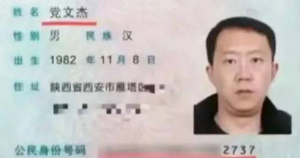Senior US official: DeepSeek helps the Chinese military and circumvents US export controls to obtain chips

A senior U.S. State Department official said that Chinese artificial intelligence company DeepSeek provides support to the Chinese military and intelligence agencies and attempts to obtain Nvidia chips that the United States prohibits from exporting to China through shell companies in Southeast Asia.
Reuters quoted an anonymous senior U.S. State Department official as saying that DeepSeek’s support for the Chinese government is not just open source access to its artificial intelligence models. “As far as we know, the company has and may continue to assist China’s military and intelligence operations.”
The official revealed that DeepSeek was mentioned more than 150 times in the procurement records of the People’s Liberation Army and related defense agencies, and had provided technical services to the PLA’s research institutions.
Officials said that DeepSeek has access to a large number of high-end H100 chips from U.S. chip giant Nvidia, and the company is taking workarounds to try to circumvent U.S. export controls, including using shell companies in Southeast Asia while seeking to access data centers in Southeast Asia to remotely access U.S. chips.
He declined to say whether DeepSeek’s practices were successful, nor did he specifically respond to whether the United States would impose further export controls or sanctions on the Chinese company.
DeepSeek shocked the global technology community by launching an AI inference model in January this year. The above conclusion of the United States shows that Washington increasingly believes that DeepSeek’s rapidly rising capabilities may be exaggerated and that it is still extremely dependent on American technology.
A report released by Canadian research institute TechInsights on Monday (June 23) also pointed out that US export controls are hindering China’s top wafer foundries from moving towards the manufacturing of next-generation chips.
The report pointed out that Huawei’s latest MateBook Fold laptop uses 7-nanometer process chips produced by SMIC, the same process used in Huawei’s Mate 60 Pro that shocked US officials two years ago, which may mean that SMIC has not yet mastered the more advanced 5-nanometer process technology that can support mass production.
The report said that the technology controls imposed by the United States may continue to affect SMIC’s ability to catch up with leading foundries in mobile devices, personal computers and cloud computing or artificial intelligence chips.






